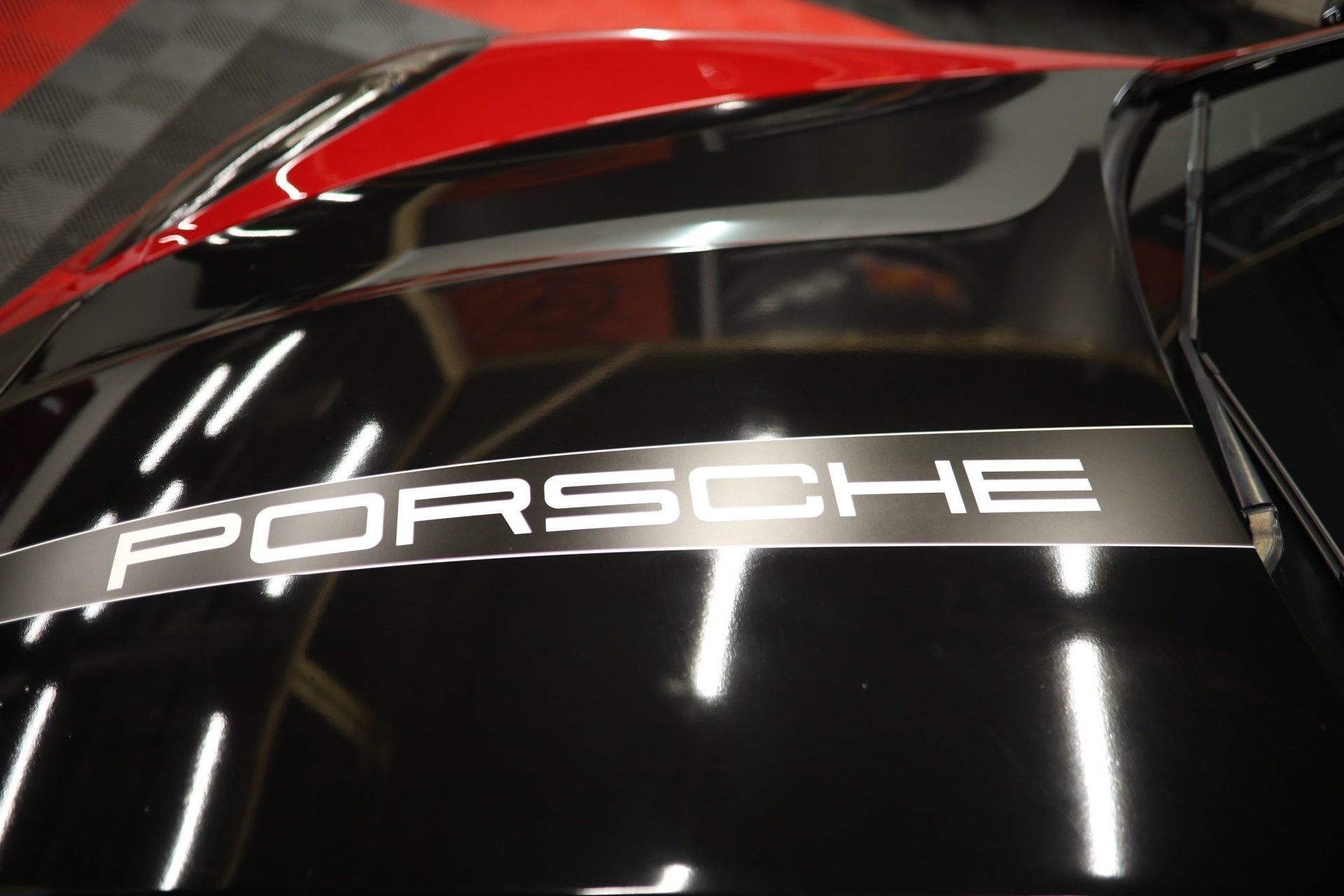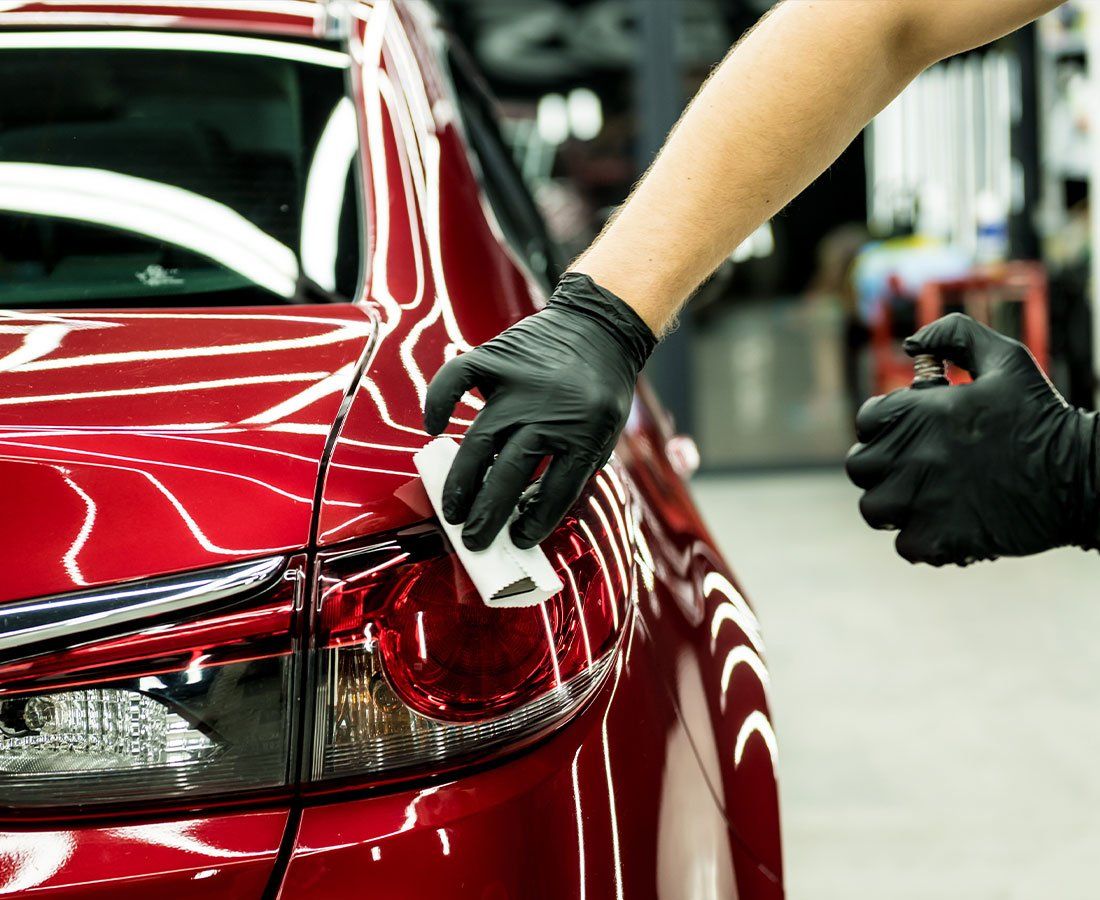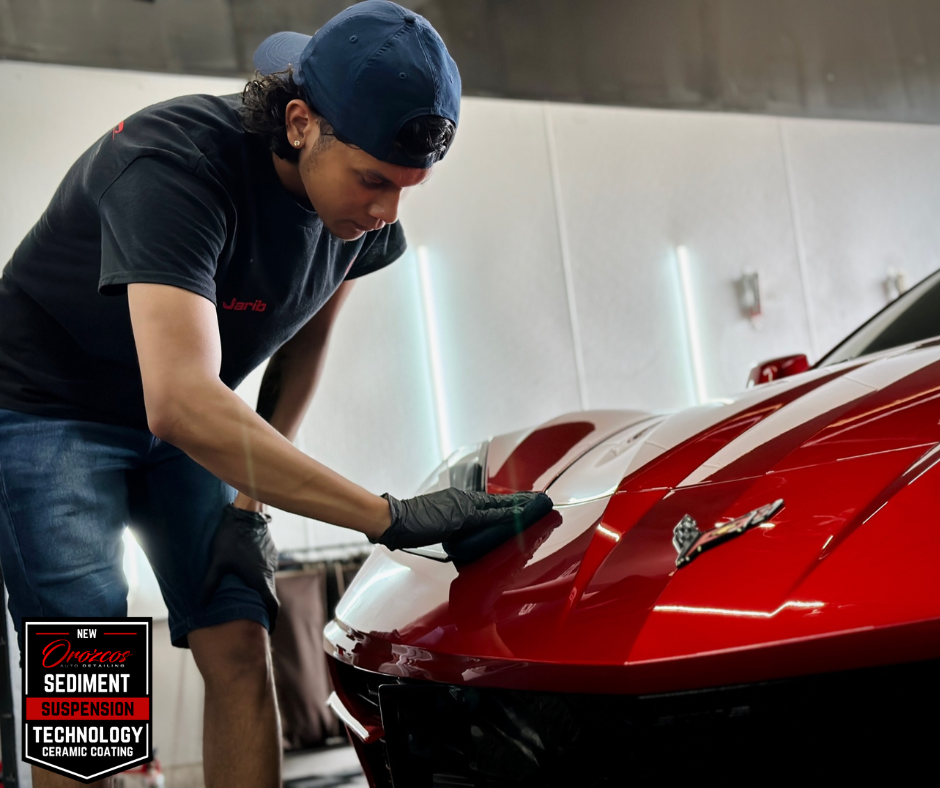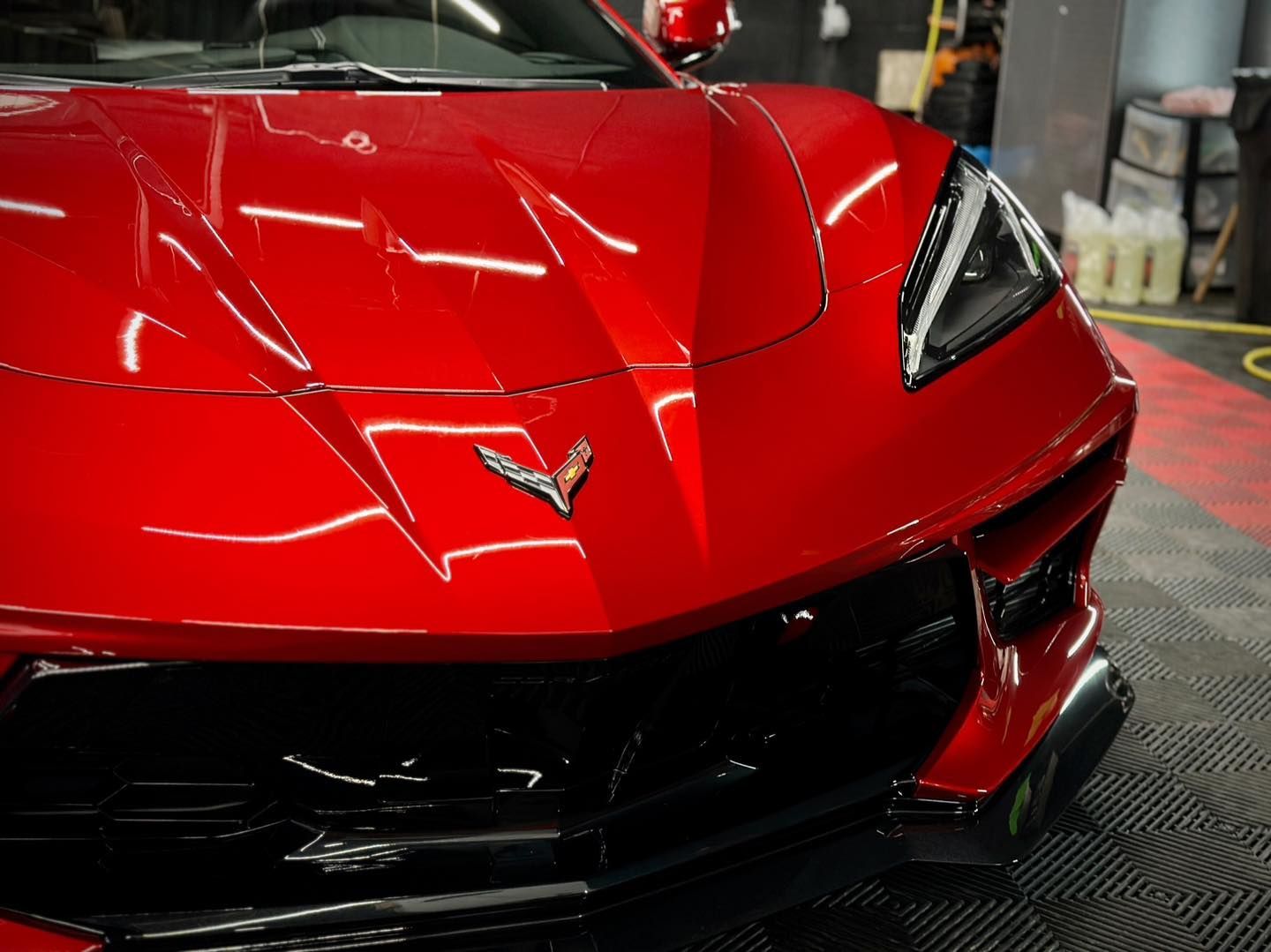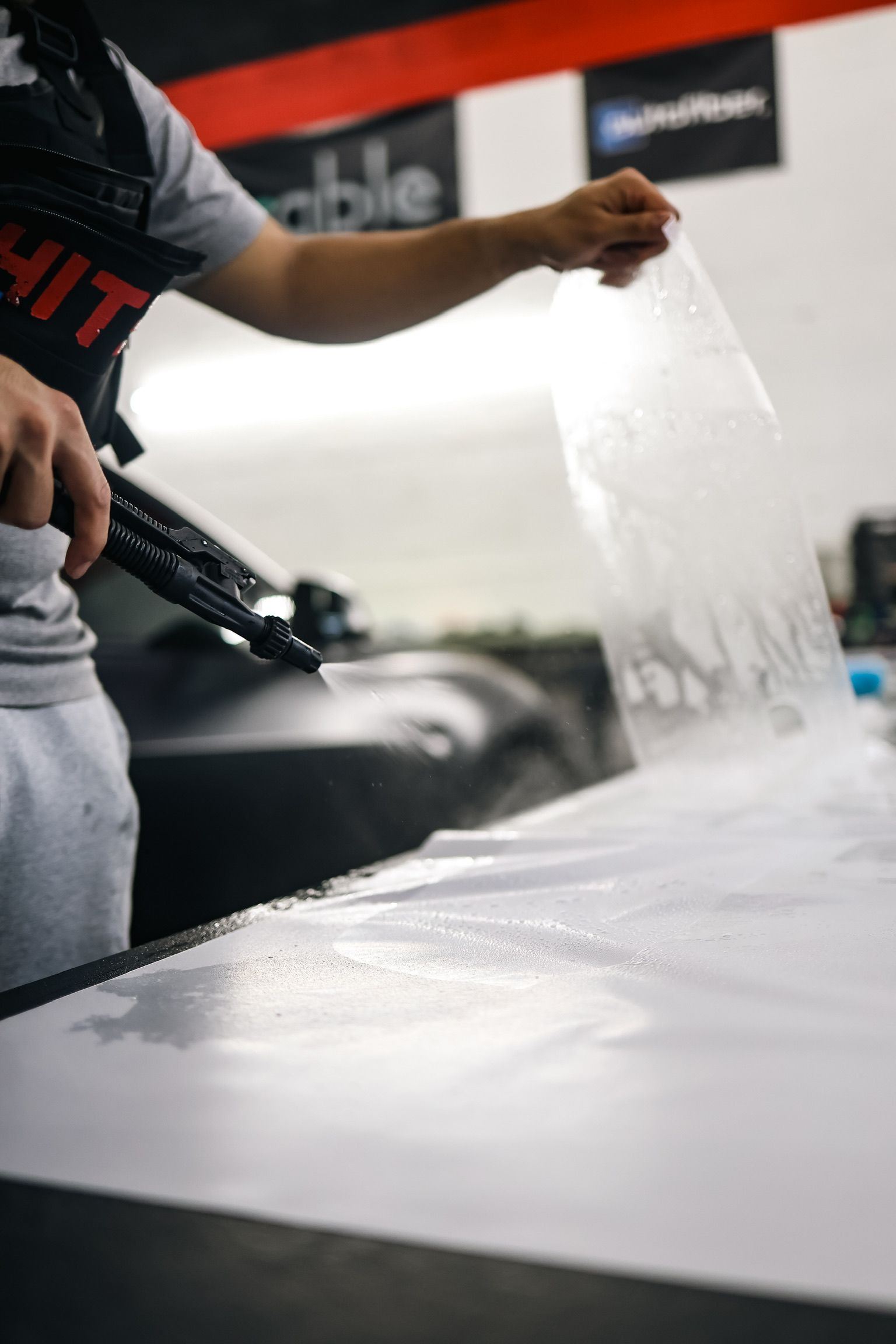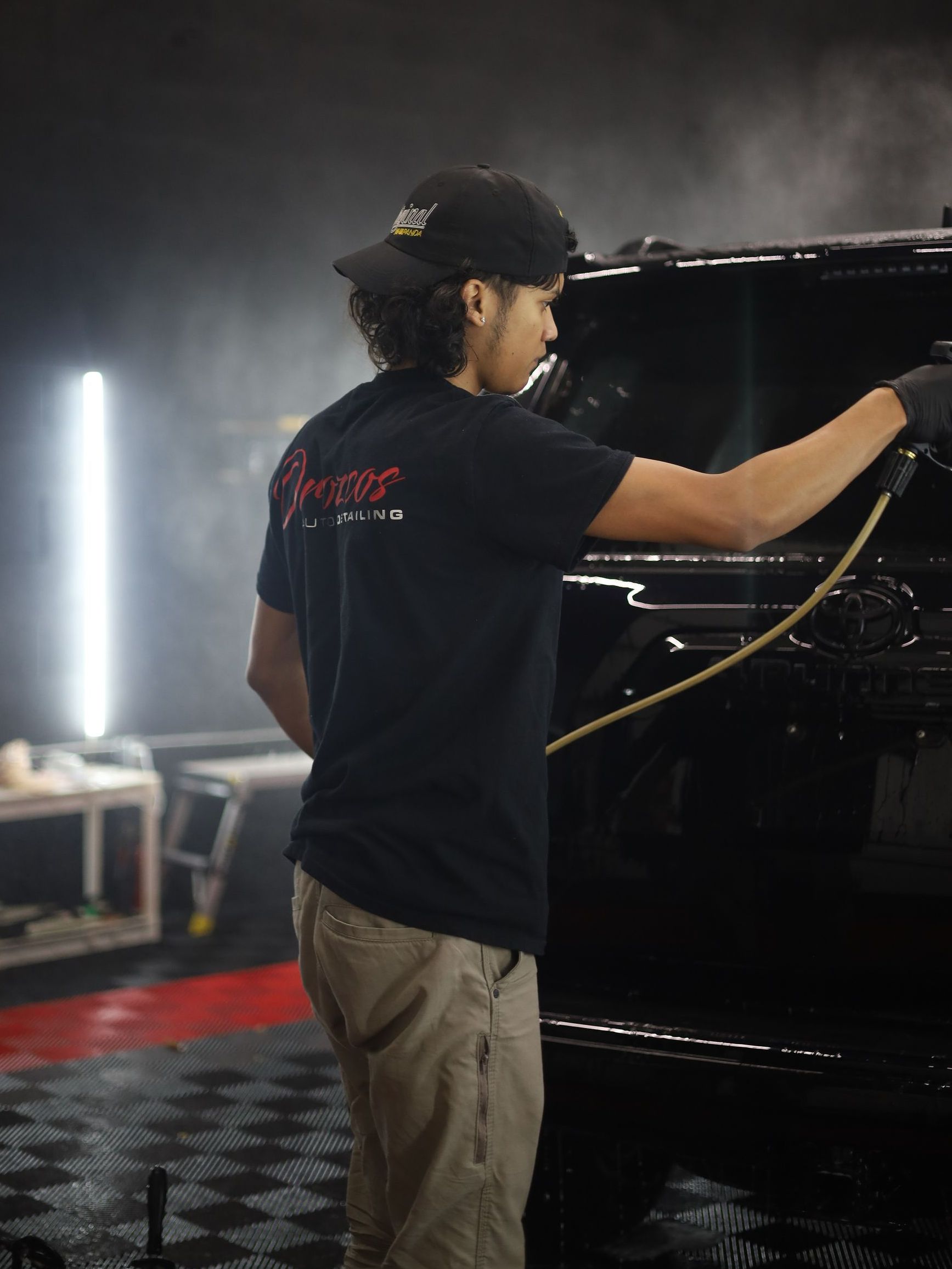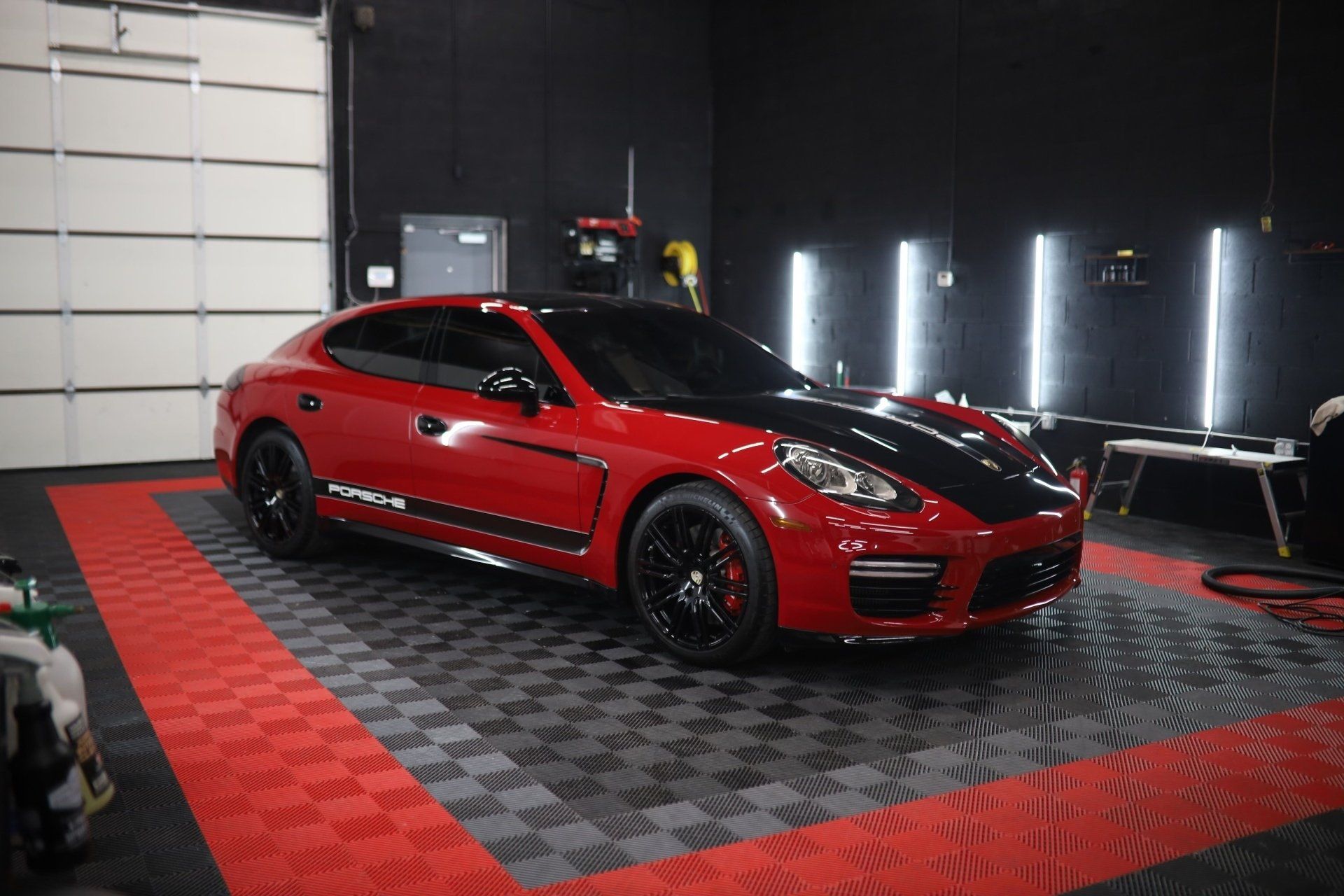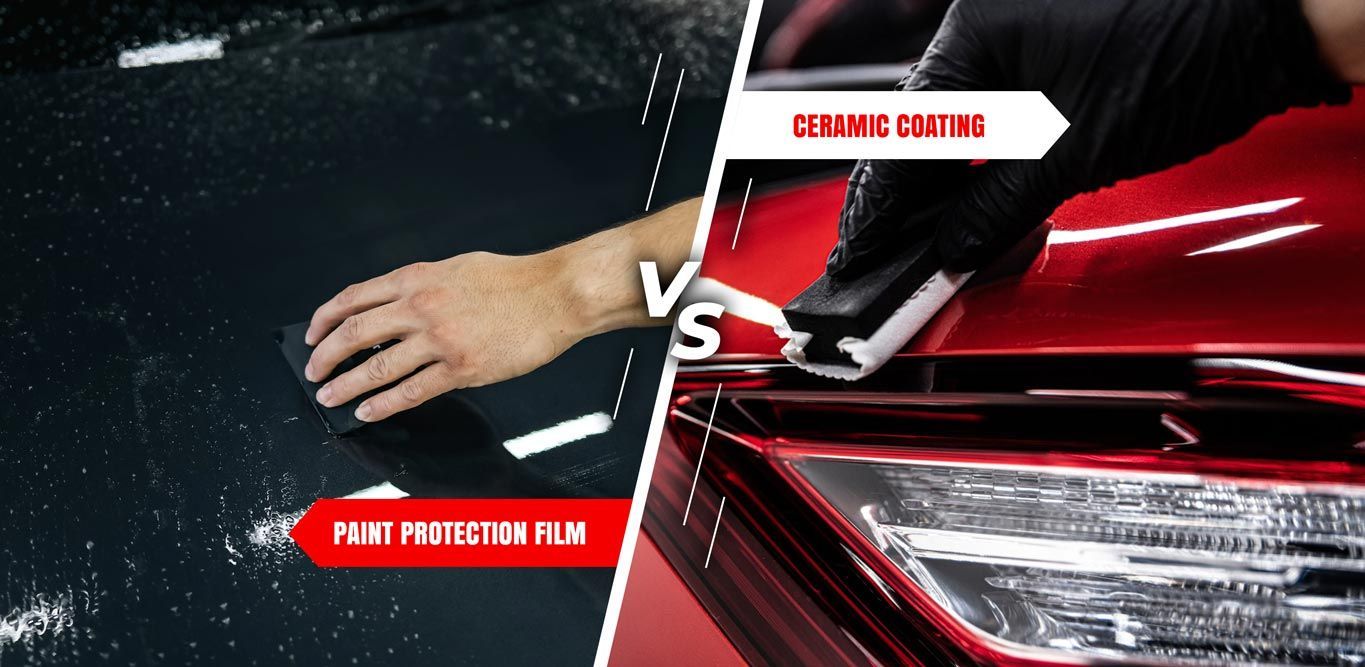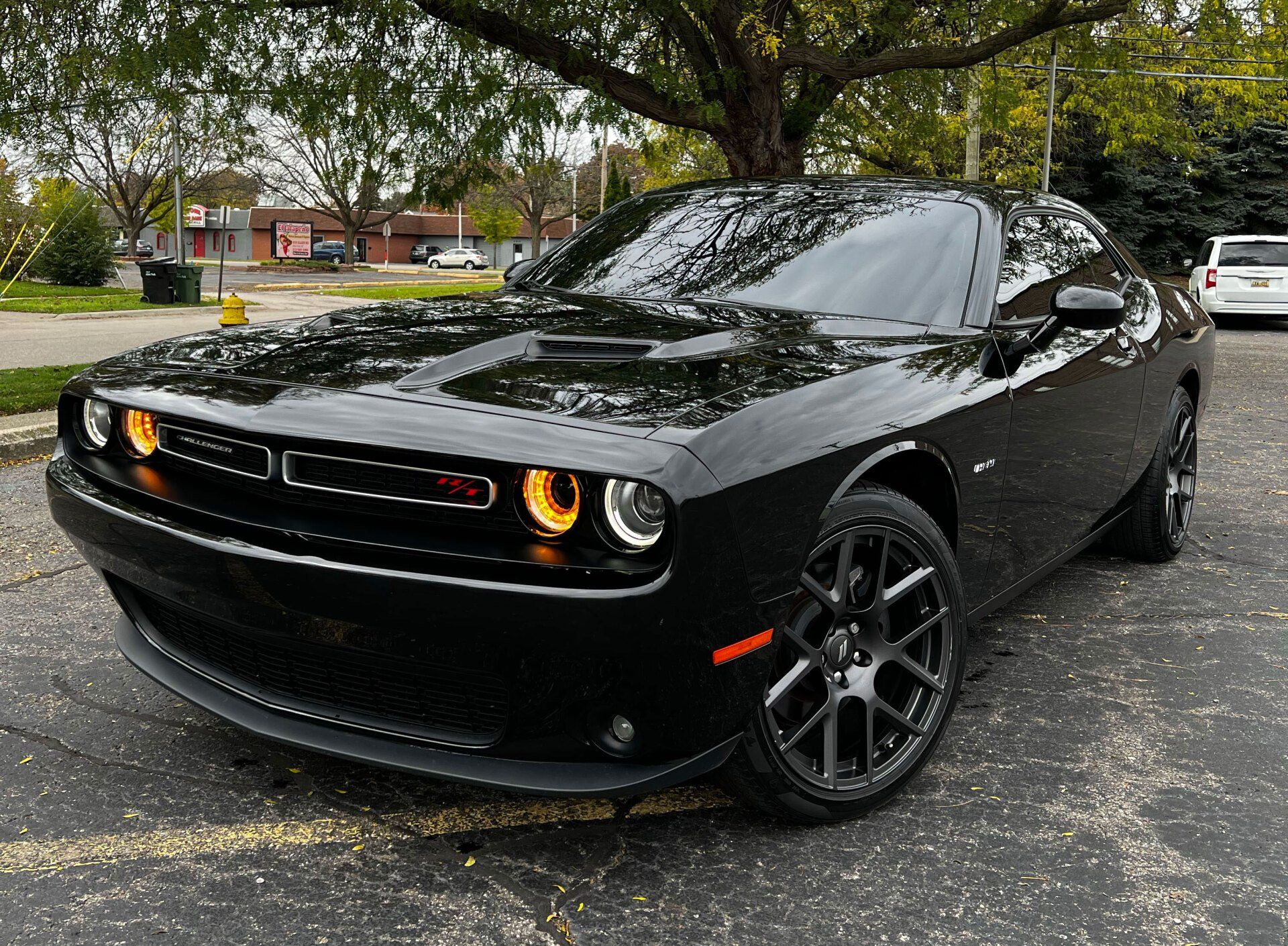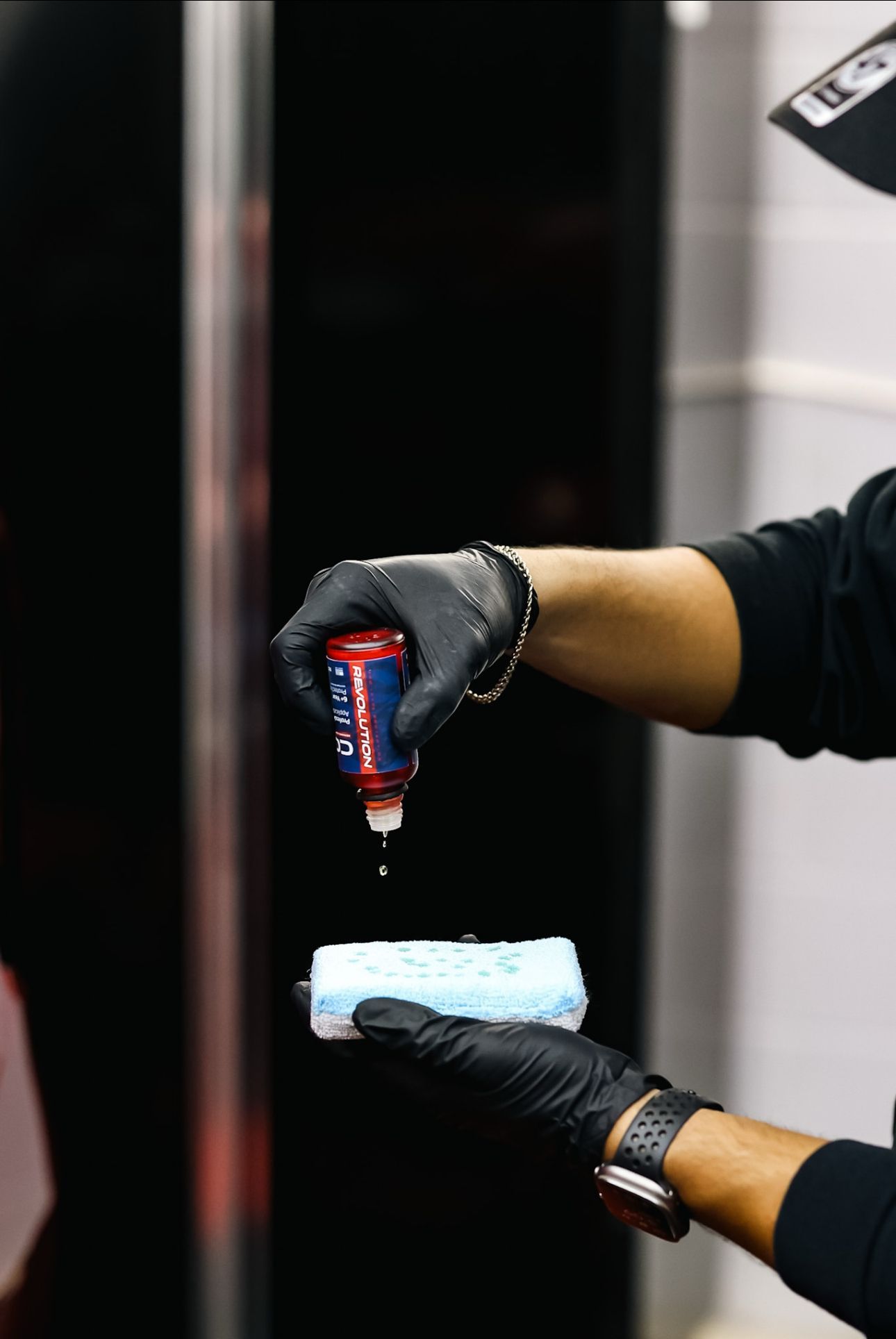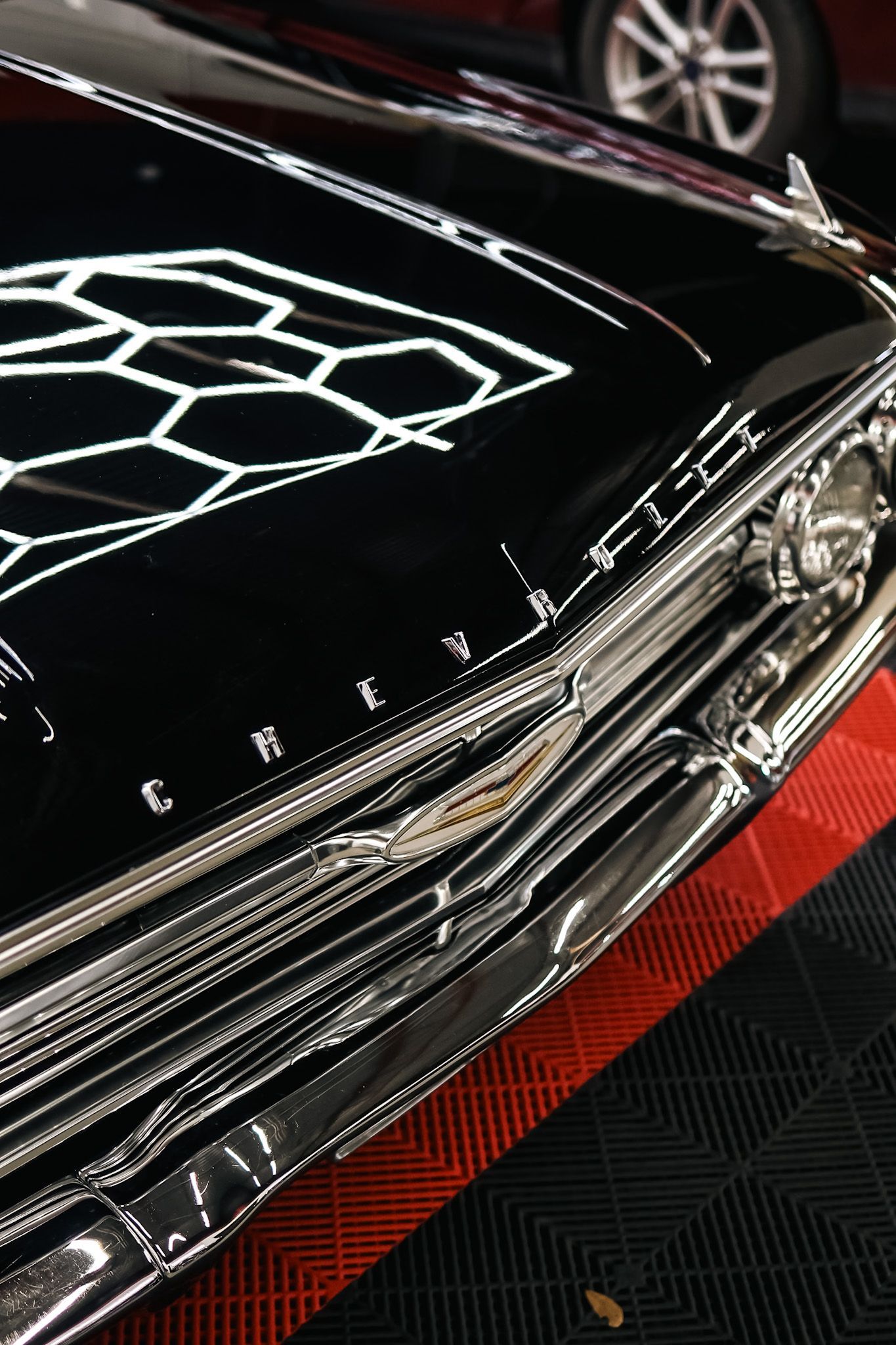Signs Your Ceramic Coating Needs Reapplication: Protect Your Car's Paint
If your car's shine seems less vibrant than before, its ceramic coating may call for reapplication. Also, note any changes in how rainwater behaves on your car’s surface. A healthy ceramic coating causes water to bead up and roll off easily, so if you see water spreading across the car's surface instead, it's another sign. Remember to look out for stuff like tar or bird droppings sticking to your car more often than usual. Now, let's dig a bit more into the signs of diminished glossiness.
The signs that ceramic coating may need reapplication include reduced water beading, loss of gloss and shine, and increased susceptibility to stains and contaminants. If you notice these signs, it may be time to consider having the ceramic coating professionally reapplied for continued protection and aesthetics.
Signs your Ceramic Coating Needs Reapplication
Your car's ceramic coating provides a protective shield against various environmental elements, ensuring your paintwork remains in top condition. However, over time, this protective layer may show signs of wear, signaling the need for reapplication. Here are key indicators that your ceramic coating may need attention:
Diminished Water Beading: One of the key benefits of ceramic coating is its hydrophobic nature, which results in water beading and rolling off the surface effortlessly. If you notice a decline in water beading efficiency, with water forming large droplets or spreading across the surface instead of beading up, this suggests reduced hydrophobicity—a clear indication that the ceramic coating is no longer as effective as it should be.
Loss of Gloss and Shine: Ceramic coatings are prized for their ability to enhance the gloss and shine of a vehicle's paintwork. If you observe a fading or dullness in the appearance of your car's paint, this could be a sign that the ceramic coating has deteriorated and is no longer delivering the aesthetic enhancements it once did.
Increased Susceptibility to Contaminants: Another notable benefit of ceramic coating is its resistance to stains and contaminants such as bird droppings, tree sap, and road tar. However, if you find that these substances are adhering more persistently to the surface of your car and proving challenging to remove, it likely signifies a compromise in the protective capabilities of the ceramic coating.
Visual Inspection: A visual inspection can also reveal signs of degradation in the ceramic coating. Look for any unevenness in texture, patches where water does not bead effectively, or areas that appear dull compared to others. These visual cues can provide valuable insight into whether your ceramic coating needs reapplication.
By staying attuned to these signs and conducting regular visual inspections, you can proactively address any issues with your car's ceramic coating before they escalate, preserving both its protective capabilities and aesthetic appeal.
Dealing with Dullness and Lack of Gloss
When you first had that amazing ceramic coating applied to your car, it was like a shield for the stunning shine of your vehicle. But as time goes by, you may notice the gloss diminishing or becoming completely lackluster. This can be disheartening, especially after investing in a ceramic coating to keep your car looking its best. The reason behind this dullness often stems from wear and tear due to environmental exposure, improper maintenance, and the natural aging of the coating, all leading to a reduction in glossiness and a lackluster appearance. When this occurs, it's a clear sign that your ceramic coating is no longer providing the optimal level of protection. The good news is that there are solutions to restore that beautiful shine. Understanding the root cause will help you address the issue effectively.
- Professional Polishing: Seek out a professional detailing expert working with ceramic coatings. They will have the expertise and equipment needed to safely polish the surface and restore the lost gloss. It's crucial to choose professionals who understand the nuances of ceramic coating to ensure a successful outcome.
- Enhanced Maintenance: Implement a more rigorous car cleaning routine to help maintain the glossy finish. Using specifically formulated ceramic coating maintenance products will go a long way in preserving the shine and protecting the coating from further degradation.
- Invest in Quality Products: Opt for high-quality detailing products designed to complement ceramic coatings. Look for wash soaps, shampoos, and sprays specifically formulated for use on coated surfaces. These products are designed to enhance and prolong the protective properties of ceramic coatings, helping to combat dullness and a lack of gloss.
- Regular Inspection: Schedule regular inspections to catch any issues or signs of wear early on. Addressing concerns promptly can prevent further deterioration and maintain the longevity of your ceramic coating.
By taking these proactive measures, you can effectively address the dullness and lack of gloss caused by aging ceramic coatings, ensuring that your car maintains its brilliant shine for years to come.
Weathering Water and Dirt Protection
Ceramic coating acts as a protective shield for your car's paintwork by repelling water and dirt, thereby preserving the vehicle's clean and glossy appearance. However, as time goes on, the effectiveness of the ceramic coating diminishes, challenging the maintenance of that pristine look. Imagine your ceramic coating as a barrier that stands between your car's paint and the elements. When it's new, it repels water so effectively that droplets bead up and slide right off, taking dirt and grime with them. But as the coating ages, it becomes less effective at repelling water, leading to unsightly water spots on your car's surface. These spots not only detract from the car's appearance but also indicate reduced protection against dirt accumulation.
Not only does diminished water repellency affect your car's appearance, but it also makes cleaning more challenging. Dirt and grime find it easier to stick to the paint without the hydrophobic properties of a well-maintained ceramic coating. Additionally, the dirt accumulation rate on a well-maintained ceramic coating is less than on untreated paint. Hence, when the ceramic coating starts to lose its effectiveness in repelling dirt, you'll notice a significant increase in how quickly your car gets dirty.
The Impact of Dirt Accumulation
As dirt accumulates more readily on your car's surface, it can lead to a dull, lackluster appearance despite regular cleaning efforts. This dullness takes away from the glossy sheen that the ceramic coating initially provided, leaving your car looking less than its best. Moreover, as dirt continues to accumulate on your car, it can impede the performance of the remaining ceramic coating by further diminishing its ability to repel water and contaminants. This creates a cyclical effect where decreased protective capacity perpetuates even faster deterioration of the coating. In essence, staying attentive to the signs of reduced water and dirt protection is crucial for maintaining both the aesthetic appeal and long-term durability of your car's exterior. Addressing these concerns promptly will ensure that you get the most out of your ceramic coating while keeping your vehicle looking its finest for years to come.
Recognizing UV Rays and Sun Damage
The sun is fantastic for picnics and beach days, but not so much for your car's paint. UV rays from the sun can cause significant harm if your car lacks proper protection. While we often associate vehicle damage with rain, snow, or gravel, sunlight and UV rays can be equally destructive. Over time, exposure to the sun can result in your car's paint appearing dull and faded. If you've ever noticed a car with patchy or faded paint, it was most likely harmed by harmful UV rays, just like if you left a colored piece of paper out in the sun for too long and it lost its brightness. Continuous exposure to direct sunlight can have a similar effect on a car's paint. A high-quality ceramic coating serves as sunscreen for your car. Just as sunscreen shields your skin from harmful rays, ceramic coating acts as a protective barrier for your car's paint, preventing UV damage and color fading.
Detecting sun damage isn't always straightforward initially. However, upon closer inspection, you may notice issues such as fading where the color of your car looks less vibrant than before, chalking where the paint surface feels rough or textured, cracking that appears in certain areas, and discoloration when uneven or discolored paint appears on some parts of the car. In such cases, it's probable that the ceramic coating is no longer effectively fulfilling its intended purpose.
Understanding Weather Condition Impacts
Weather conditions play a significant role in determining how long a ceramic coating will last on your car. From intense heat to heavy rain, your vehicle's exterior is constantly exposed to nature's elements, and each one has its own specific impact on the protective layer of ceramic coating. Let's start with extreme temperatures. When the weather swings from hot to cold and back again, it puts a strain on everything, including your car. Ceramic coatings expand and contract with temperature fluctuations, which might weaken their bond with the paint over time. In regions where extreme temperature variations are common, such as desert areas or places with harsh winters, the durability of the coating could be compromised more quickly.
Rain and Humidity: Rain is a blessing for nature, but not so much for your car's pristine appearance. Frequent exposure to rainwater can lead to water spots that dull the shine of your coating. Moreover, high humidity levels can create a breeding ground for mold and mildew, which can cling to the surface of your car and compromise the effectiveness of the ceramic coating. Prolonged exposure to high humidity can accelerate the degradation of the coating's hydrophobic properties, reducing its ability to repel water and leaving the surface vulnerable to water damage and staining. One way to counteract this is by regularly cleaning and drying your vehicle thoroughly after it has been exposed to rain or high humidity. This prevents water spots from forming and helps maintain the water-repelling properties of the coating.
Airborne Pollutants: Airborne pollutants such as industrial emissions, acid rain, pollen, and other contaminants can settle on your car's surface over time. These substances not only compromise the appearance of your vehicle but also have a detrimental effect on the ceramic coating. Pollutants can act like tiny abrasive particles when they come into contact with your car's surface. They slowly wear down the protective layer, diminishing its ability to shield against environmental elements. In areas with high pollution levels or industrial activity, the lifespan of ceramic coatings may be notably reduced compared to regions with cleaner air quality. With such complex influences at play, it becomes evident that environmental factors significantly impact the lifespan and protection offered by ceramic coatings.
Reapplying and Maximizing Ceramic Coating Benefits
When it comes to reapplying ceramic coating, a crucial aspect is ensuring thorough surface preparation. Before applying a new coat, it's vital to remove any remnants of the previous coating. This preparation ensures that the new layer bonds effectively with the paintwork, providing maximum protection and longevity. Surface preparation typically involves a meticulous process of cleaning and decontaminating the car's paintwork. This includes removing any dirt, residue, or impurities that could hinder the bonding of the new ceramic coating. A professional ceramic coating service is often recommended for this critical step to ensure that the surface is expertly prepared for reapplication. This professional touch can make a significant difference in the overall effectiveness and longevity of the ceramic coating.
Once the surface is impeccably prepared, the application of the new ceramic coating is where expertise truly matters. Proper application techniques not only enhance paint protection but also contribute to improved scratch resistance. By seeking professional assistance for reapplication, one can benefit from the experience and knowledge of professionals who understand the nuances of ceramic coating application. For car owners seeking to maximize the benefits of ceramic coating in terms of long-lasting gloss and shine, professional guidance can be invaluable. Expert ceramic coating application techniques can significantly enhance the aesthetic appeal while providing durable protection against environmental elements. Moreover, professional assistance ensures that the ceramic coating is evenly applied, eliminating the risk of streaks or uneven coverage. This attention to detail culminates in a smooth and uniform finish that not only looks visually stunning but also delivers comprehensive protection across the entire vehicle surface.
Top-Notch Ceramic Coating Services in Lincoln Park, MI
Elevate your car's protection and aesthetic appeal with Orozco's Auto Detailing, the go-to destination for
top-notch ceramic coating services in Lincoln Park, MI. Our skilled professionals specialize in providing a superior shield against the elements, ensuring your vehicle maintains a pristine finish for years to come. Orozco's Auto Detailing takes pride in delivering excellence, using cutting-edge ceramic coating applications to create an invisible barrier that enhances gloss, repels contaminants, and safeguards your investment. Trust us to bring a new level of brilliance to your car, making it stand out on the streets of Lincoln Park. Don't settle for ordinary; choose extraordinary protection with Orozco's Auto Detailing. Schedule your appointment today or call us at
(703) 298-1864 and experience the pinnacle of ceramic coating expertise!
SHARE WITH YOUR FRIENDS
